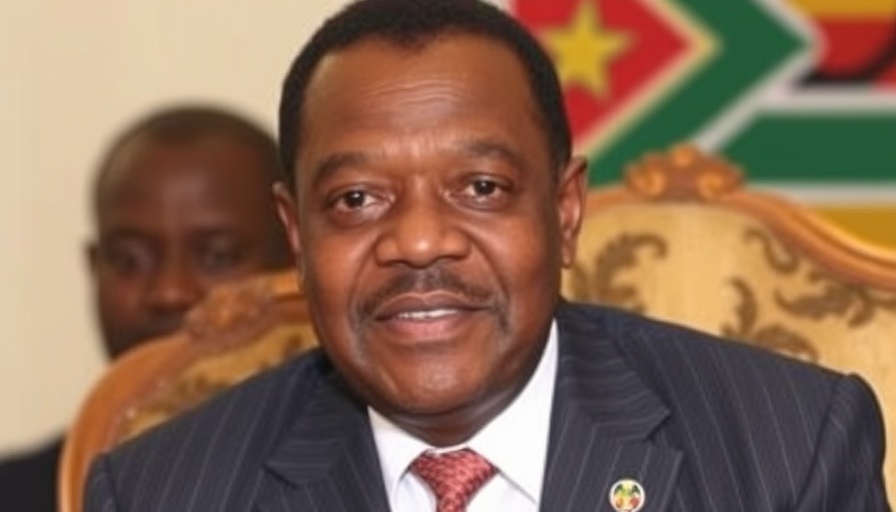
A Complex Legacy: The Funeral of Zambian Ex-President
The recent decision to bury Zambia's former president in South Africa has stirred controversy within the political landscape. Following a bitter family row over where he should be laid to rest, the ex-president's last wishes are quickly turning into a public debate, reflecting underlying tensions within Zambian politics and its historical ties with South Africa.
A Historical Context: Zambia-South Africa Relations
Zambia and South Africa share a long history characterized by both collaboration and tension. Zambia played a significant role during the Apartheid era, serving as a haven for many South African exiles. This intertwined history presents a complex backdrop for the ex-president's burial choice. The decision to inter him in South Africa could be viewed as a reconciliatory gesture or a subject of contention exacerbating perceptions of foreign influence in Zambian affairs.
The Fallout: Public Perception and Reaction
As details of the burial row emerged, public sentiment has begun to align itself with the complexities of governance and legacy. Many Zambians question the implications of moving the body abroad, with concerns over national identity and sovereignty coming to the forefront. Such discussions are amplified when tied to national elections and the expectations placed upon political leaders to effectively engage with these sensitive historical ties.
Shifting Political Landscapes and National Implications
The current row brings to light pertinent issues within Zambian politics, notably the weight of public sentiment amidst increasing political fragmentation. How political factions, such as the ruling party and opposition groups like the Democratic Alliance and the EFF, respond to this controversy may ultimately influence upcoming national elections. As citizens grapple with state capture and economic recovery, they must weigh the significance of a single burial against broader socio-political trends.
Future Predictions: Navigating Political Waters
forecasting the impact of this turmoil is as critical as understanding its roots. The way this funeral dispute is handled may directly influence governmental policies and strategies in dealing with prospective crises, such as load shedding and economic instability. Political parties are likely to use this moment to amplify their platforms, with the ruling party, the ANC, expected to frame this situation as a testament to its political maturity.
Conclusion: The Value of a Unified National Identity
Ultimately, the burial of the Zambian ex-president in South Africa serves as much more than a straightforward decision about honors; it reflects a national narrative still grappling with its complexities. For Zambians and observers alike, understanding this situation's emotional and political ramifications is key to grasping the intricacies of contemporary South African politics. Now, more than ever, a call for unity and constructive dialogue among political factions is essential to foster a robust national identity moving forward.
This incident stands as a reminder of how history, politics, and personal legacies intertwine, shaping the present and future of nations.
 Add Row
Add Row  Add
Add 




Write A Comment